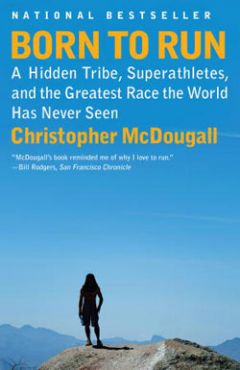So, what was my verdict of the national best-seller? Well, I hate to conform to the view of the masses, but I was really engrossed, to the extent that I had to keep reminding myself that this was fact, not fiction & to that end I have spent time researching the facts & people described in the text since putting the book down. I have been discussing the nutritional value of chia seeds & pinole with one of my best friends, Suzie (Clark), who is a dietician & nutritionist working in elite sport. Furthermore, I have been clinically reasoning & reflecting on the merits of introducing some different components to my injury prevention & rehabilitation programmes that I have been contemplating whilst reading some of the chapters.
Let's start with the chia seeds, which appear to be one of the functional foods that qualify for the oft banded-around title of "superfood". The seeds are rich in omega 3, omega 6, protein, calcium, iron, zinc, fibre, anti-oxidants & also absorb large quantities of water in relation to their mass. They have a low-glycaemic index rating, meaning they are metabolised slowly, providing a source of slowly-released energy & as such are a great food to utilise whilst training. My biggest thought was, "how the heck do I make anything with them?" - well the following links may just provide a few answers!
I can assure you, I will be looking to source some seeds over the coming weeks for some experimentation!
Secondly, I started to research the pinole, which is the other food stuff frequently mentioned by Christopher McDougall throughout his travels. Pinole is a staple food used by the Aztecs, made from coarsely ground, toasted maize kernels, which can be eaten by itself, blended with seeds or mixed together with water, as the base for hot or cold drinks. However, with a bit of imagination, it can also be used as the base for more western foods such as breads, cakes or pancakes.
Another interesting recipe that only gets a brief mention are some Tarahumara flapjacks with a twist, made by whipping up boiled rice with over-ripe bananas, corn meal & goats milk before cooking together - sounds like another culinary adventure that needs exploring!
In addition to the food ideas, which I have obviously seized upon first given the fact that lunch seems a long time ago, there were some interesting technical portraits that were painted - obviously given that the book uses ultra-marathon as it's focus, the technical aspects are not going to be relevant for the sprinters with whom I work but I will be interested to speak to the coaches at work to see who has read the book & gauge their thoughts on these aspects.
One fact that interested me with regards to the physiology of running, was that voiced by Dr Dennis Bramble after analysing the finishing times of the 2004 New York Marathon & cataloguing them according to age of the athlete. Bramble suggests that endurance running performance improves dramatically from the age of 19, before reaching a peak around the age of 27 before steadily declining again (no surprises there), however, it's not until the age of 64 that the decline is so marked as to match that of the performance achieved at the age of 19!! His conclusion - "you don't stop running because you get old, you get old because you stop running".
McDougall continues to quote Dr. Bramble's musings as he continues to discuss the current prevalence of heart disease, strokes, diabetes, depression, hypertension & a dozen forms of cancer in the Western World, in comparison to the lack of influence of the same diseases on the mortality of our ancestors. Running, it seems was more than just exercise, it was a remedy for any epidemic formerly listed.
There are several other points of information raised in "Born to Run" that I am continuing to research, but in the absence of pinole, chia seeds & alternative flapjacks, it is time for supper, so those will have to wait for another day!

